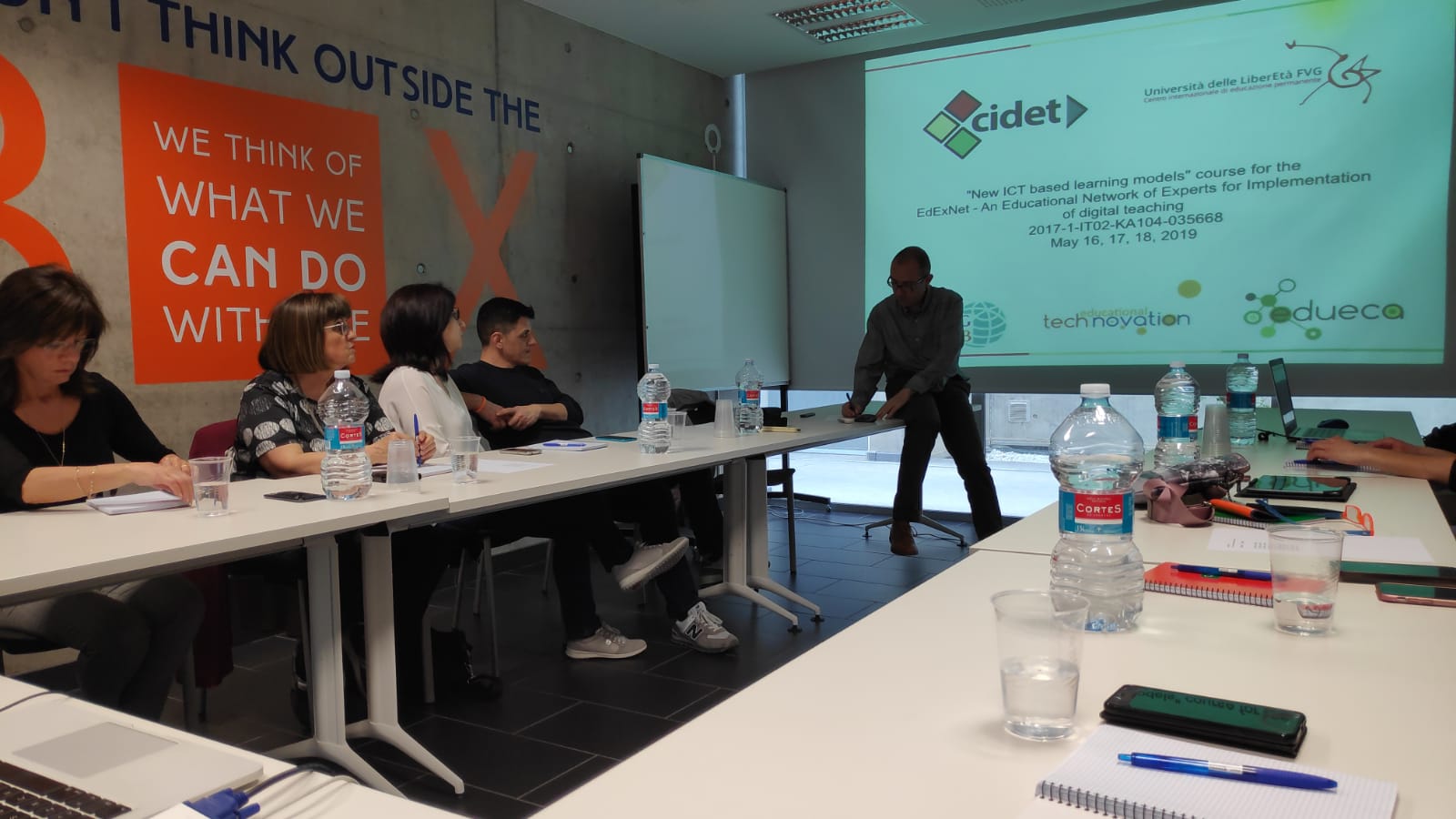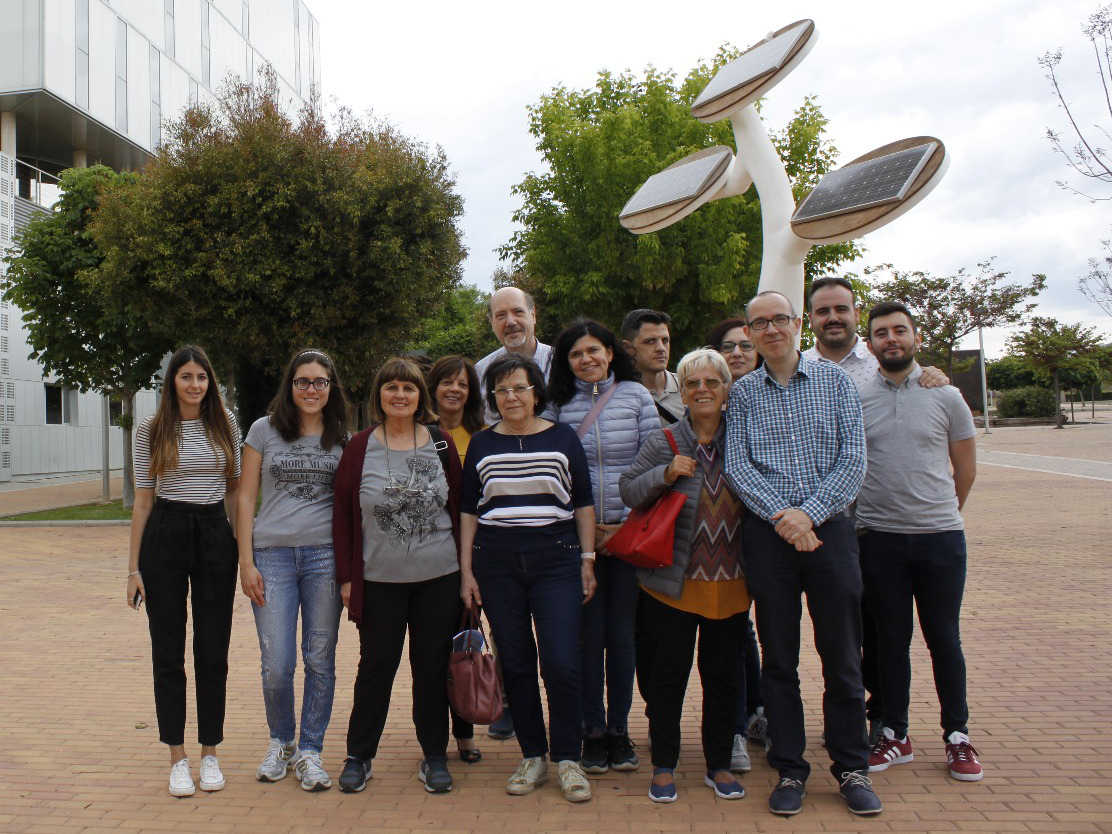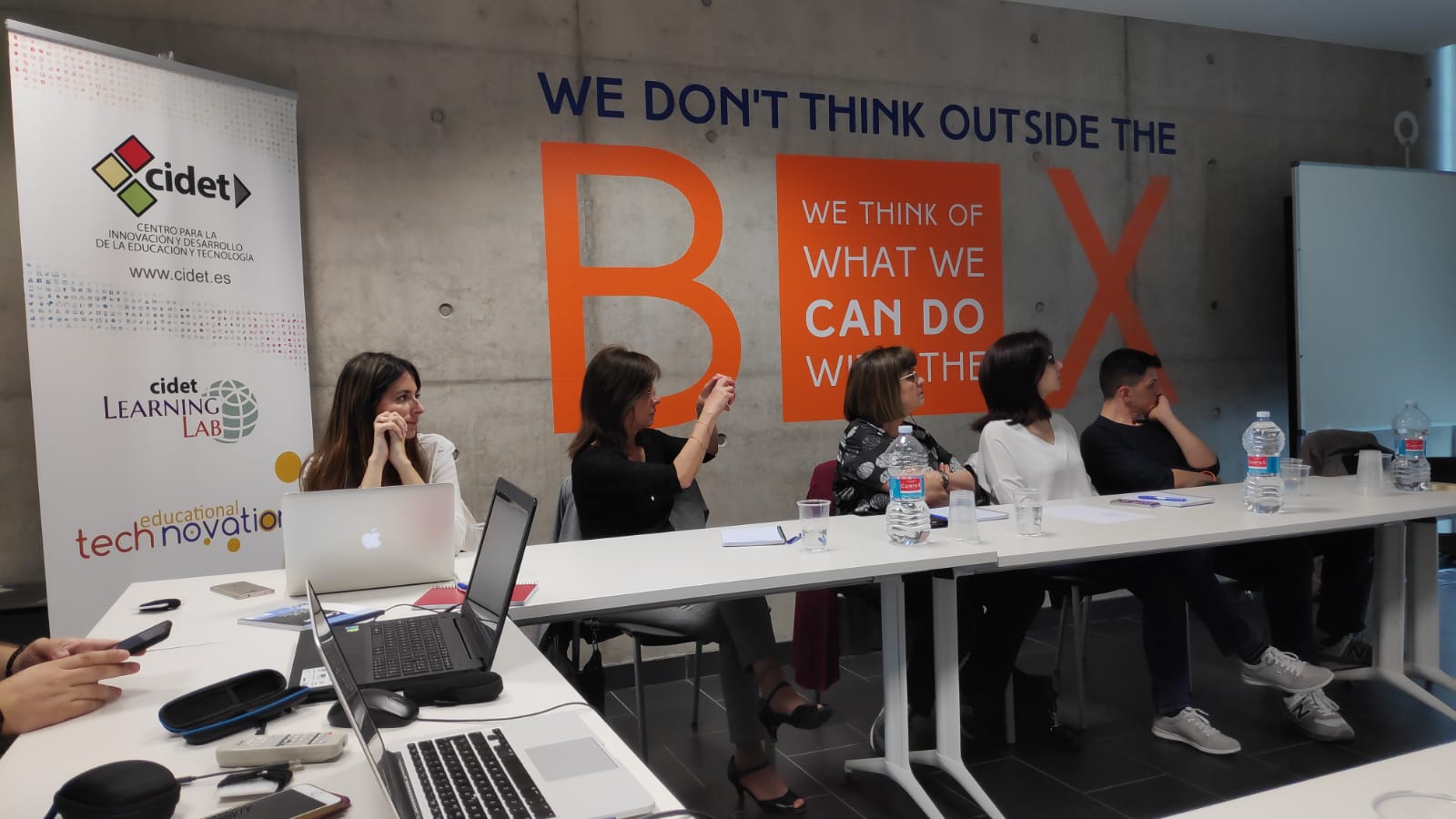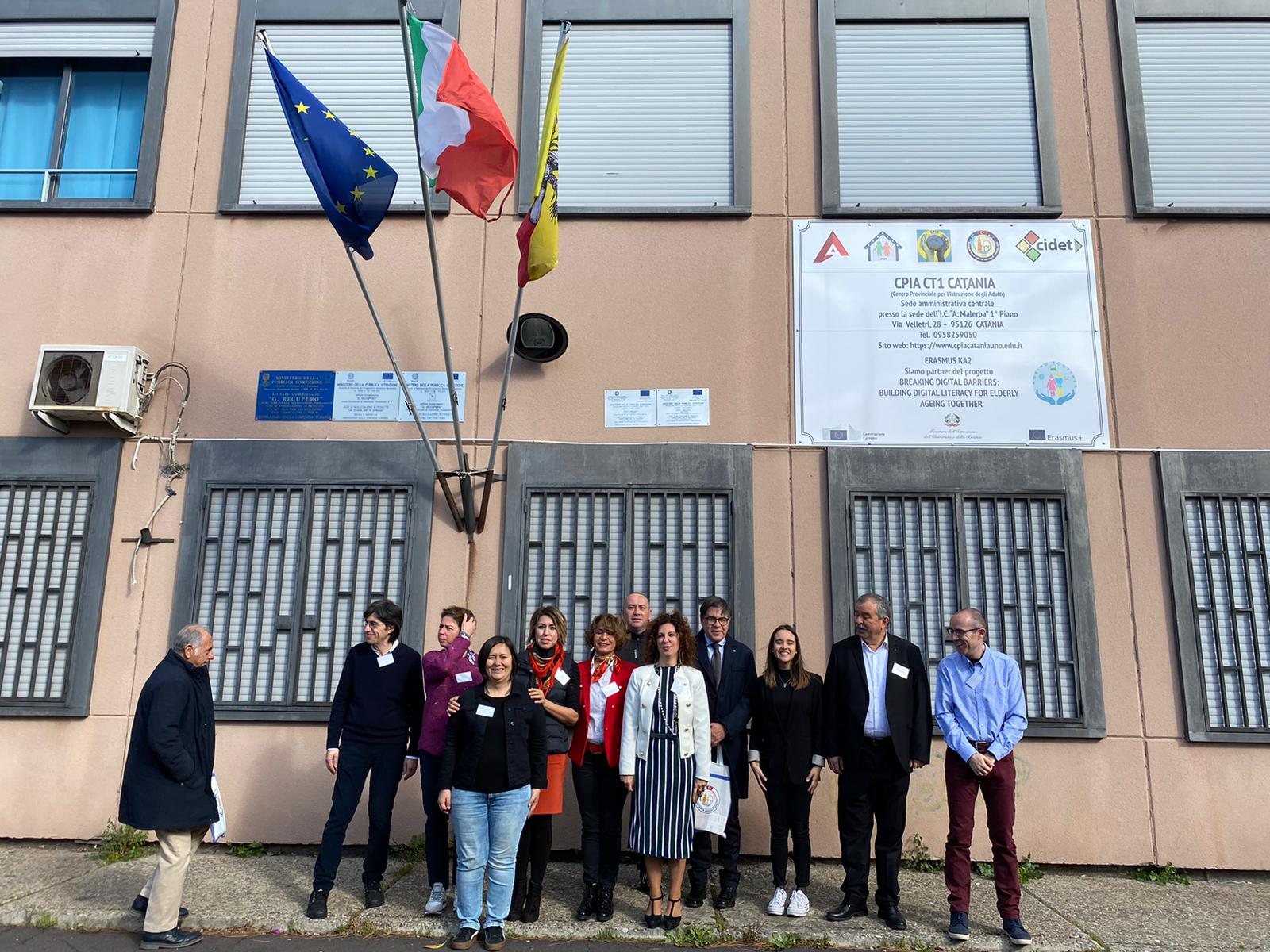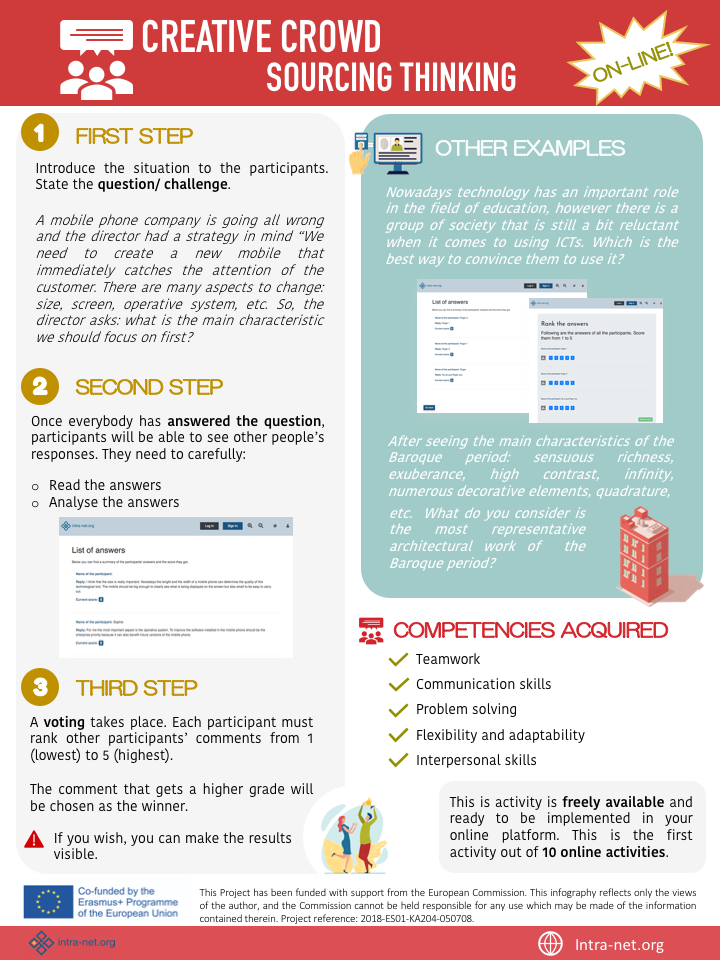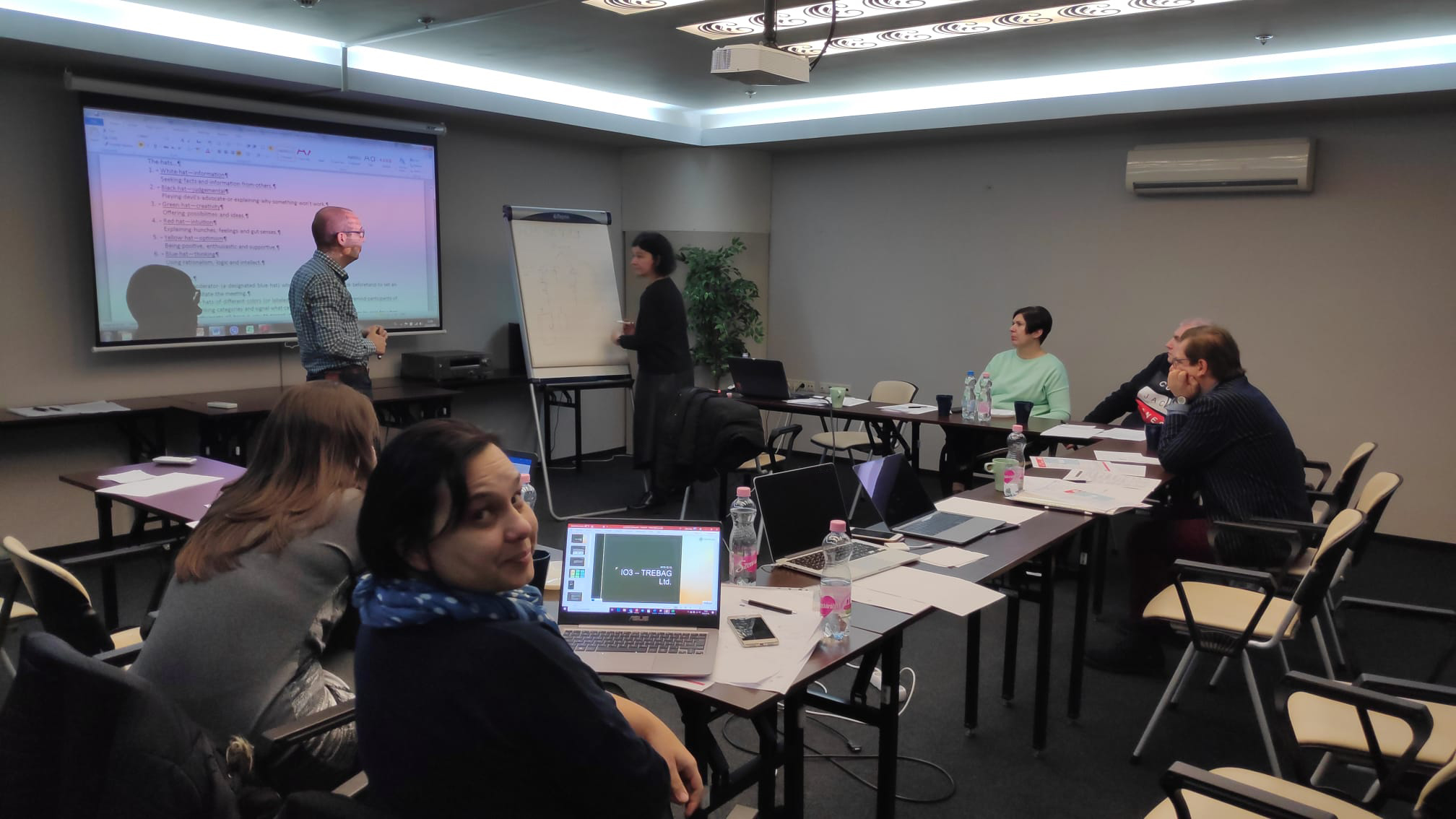During the week of 15-18 May 2019, 9 teachers, coordination staff and ICT experts participated in CIDET to attend the course “New ICT based learning models” within the framework of the project “EdExNet – An Educational Network of Experts for Implementation of digital teaching”.
During these 4 days, we had the opportunity to train our colleagues at the Università delle LiberEtà FVG (Udine, Italy) on the following aspects: The importance of digital competences in students, but also for teachers, who with the help of a techno-pedagogical dynamizer can design new activities based on information and communication technologies (ICTs), and thus make learning more experiential, useful, and profitable. The teacher (who can be of any subject) must be aware of the potentialities of technology-enabled education.
This is the first step that must be transmitted to the student, making him/her a participant in the pleasure and enjoyment of ICTs.we have taught different websites and ICT tools so that they can use them in their classes, both in face-to-face and online classes. We make it possible for the student to acquire other skills such as creativity, problem solving, communication, teamwork, etc.
Finally, another big block has allowed us to teach methods, pedagogies, techniques and eLearning environments, with numerous examples, where teachers have been able to learn and adopt what most interested them for their own subjects, ICT education holds a treasure, and we hope that thanks to this Erasmus KA1 course have inspired our colleagues in Udine in the use of educational ICT with new methods and proposals. the subject matter we have taught has been the subject of eLearning, with new methods and proposals.
This has been the content of the course:
-
- Introduction
- The web 2.0; the collaborative Internet
- Recent history of the web (2000 till present)
- The web 2.0 principles, comparison with web 1.0
- The role change of the surfer, new tools and services
- The net-citizen
- Basic use of the net
- Virtual communities principles (generators, consumers; creators, readers; followers)
- Identity and security principles, awareness
- The user-power, networking and the data creation, flow and improvement.
- Moving from e-adoption to e-inclusion; from expertise to experience
- The first web 2.0 tools
- Blogs, wikis and twitter principles, potentialities, advantages
- Knowledge flow, link and valorisation.
- From adoption towards Digital inclusion. Roadmap
- The web 2.0; the collaborative Internet
- Introduction
-
- Digital Skills and Competences
- DigComp for learners, DigCompEdu for educators, and “Learning Organisations”
- Learning models
- Formal, non formal and informal.
- The design of Learning Management Systems (formal)
- Net-based guided learning activities (no-formal)
- Routines and interactions (informal)
- From the classroom to the net: new skills and activities
- Skills and competences required for the trainer
- Potentialities (skills and competences) for the learner.
- Transversal skills for learning
- Groups at risk
- Soft skills
- Entrepreneurship
- Adults and Senior learners
- Digital Skills and Competences
-
- eLearning contexts
- New environments and services for learning
- New roles: content designer, facilitators and educational advisors
- The learning roadmap
- From reader to active citizen
- from individual author to collaborative author
- Skills Awareness, critical thinking,
- E-inclusion
- New tendencies
- The ubiquitous internet (tablet, smartphone)
- The recent systems and tools for learning (MOOCS, blended systems, gadgets)
- eLearning contexts
-
- Applied pedagogies to digital didactics
- Requirements (skills competences needed, framework)
- Andragogy
- Constructivism
- Connectivism
- Applied pedagogies to digital didactics
-
- eLearning design
- Environments and activities examples
- In classroom as supporting
- Before/After classroom
- Blended / online
- Process-based learning vs results-based learning
- Hard skills vs Soft skills, approaches for permeability
- Assessment of soft skills,
- Environments and activities examples
- eLearning design
-
- Practical workshops about ICT-based tools in following fields
- Creativity and collaboration
- Learning in the net
- Web services and practises (I)
- Example of long-term tools as blogs and wikis for learning
- Practises: learning by research, learning sharing. Methodology
- Lessons learnt; weaknesses, potentialities.
- Web services and practises (II)
- Specific tools available for creativity, collaboration and sharing on the net
- Practises: brainstorming, knowledge building, voting, sharing and improving (feedback)
- Serious games
- Lessons learnt; weaknesses, potentialities
- Practical workshops about ICT-based tools in following fields
If you are interested in training for digital teachers, please contact us.

